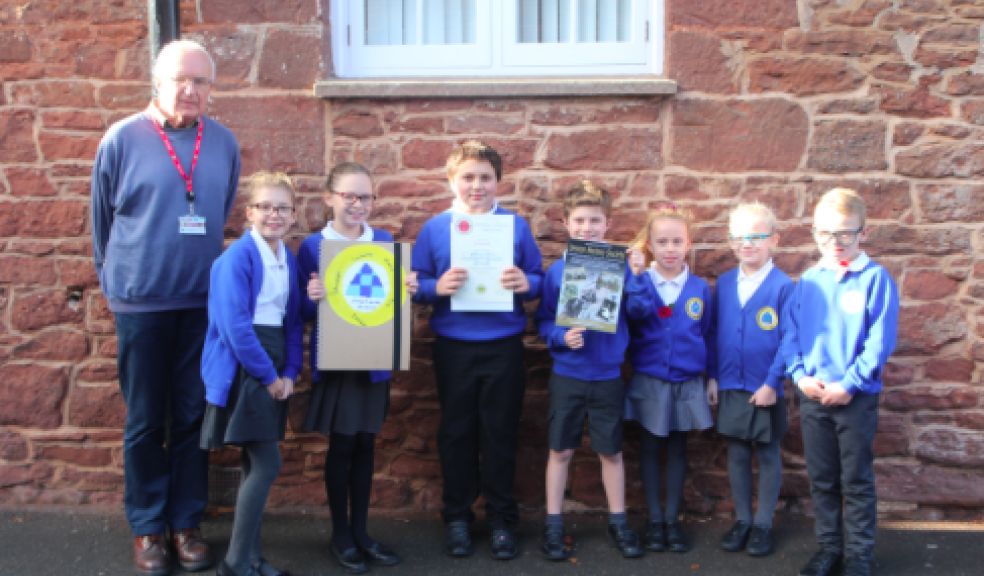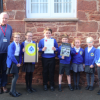
Broadclyst School wins first-ever Devon History Society Primary School History Prize
Children in last term’s Year 2 and Year 4 at Broadclyst Community Primary School (BCPS) are thrilled to have won the Devon History Society Primary School History Prize the first time it has been awarded. Members of the Society visited the school and presented the prize, of history books for the school library, and a framed certificate, during the Remembrance Day assembly on Friday, 10 November.
The youngsters impressed the judges with their project book on the history of Broadclyst. The children in Year 2 looked at what life would have been like as a child at Broadclyst school in the 1950s. They approached the project as historians, investigating old school records and photographs from the time, interviewing a local resident who had attended the school in the 1950s and then compiling this research in their very own diary entries. They also designed a school emblem based on what they thought it would have looked like at the time, recreating this with elements of historical fact found in the old photographs.
Year 4 looked at what life would have been in Broadclyst itself when the school was built and first opened in the early 1800s. They went on a historical walk around the village, took pictures and wrote descriptions about Clyston Mill, St John the Baptist Church, Marker’s Cottage (the first home in the village made of wattle and daub) and Broadclyst’s rural farmland. They then drew and painted watercolour illustrations of each historical landmark.
Secretary of the Devon History Society, Viv Styles, commented: “We were very impressed by the standard of work overall and by the emphasis on the history of the village as well as the diary entries of school life in the 1950s. The illustrations are delightful too.”
Jonathan Bishop, headteacher at BCPS, added: “We are very proud of the children, who have been able to learn and understand real history through this project-based approach to learning.”




















